In 2015 my wife, a New Zealander who has lived in Thailand since 2000, received Thai citizenship through marriage to a Thai husband (ie me!). We applied in April 2008 and were on the verge of getting to the final stage of the process in July 2010 when we had to put the application on hold for a few years as circumstance had us moving to Australia.
Fast forward to the end of 2013 we had returned to Thailand and my wife’s application back in the system. We were informally notified in June 2015 that the Minister had signed off on a batch of applications for Thai citizenship through marriage to a Thai husband, including ours, and in August 2015 my wife’s name was announced in the Royal Gazette as having received Thai citizenship.
The story and the steps on how you can make it happen are outlined below.
At the time of printing this article below remains valid. Applications are still being received by the Thai Special Branch, and will be processed under current rules. We suggest those who are looking to apply for citizenship do so quickly, as we do not have any visibility yet as to how the rules will change. |
Thai Nationality Act
“Section 9: An alien woman who marries a person of Thai nationality shall, if she desires to acquire Thai nationality, file an application with the competent official according to the form and in the manner prescribed in the Ministerial Regulations”
Thai nationality law provides a somewhat expedited path for foreign spouses to gain Thai citizenship through marriage to a Thai husband. By expedited, for foreign women there is no need for the applicant to hold a work permit, nor have a history of working. There is also no need to sing the national anthem or the royal anthem (Sansoen Phra Barami/สรรเสริญพระบารมี) as part of the interview process, and the threshold for Thai language knowledge is quite low.
Finally, there is no need to for the foreign wife to have held permanent residency prior to application and no set minimum time of living in Thailand. Given the legislation doesn’t proscribe any qualifications on the foreign wife, the main focus is on the qualifications of the husband, his work and income history and the legitimacy of the relationship.
Where to Apply for Thai Citizenship
Special Branch, National Police HQ, Bangkok
The long and the short of it, is that Bangkok is the best, and often the only place to apply for citizenship.
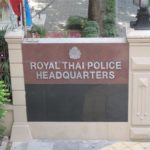
If you normally reside in Bangkok, you apply at police Special Branch, National Police Headquarters, located on Rama 1 Road. For those who know Bangkok well, it is across the road from Central World. Note that, applications for Thai citizenship through marriage to a Thai husband are handled in an office just next door to the office which deals with most other citizenship applications. Details can be found here.
Important note: If you are based outside of Bangkok and you and your husband have your ‘tabieen baan’ (ทะเบียนบ้าน) and ID cards (บัตรประชาชน) registered in another province, applications need to be made at the local division of Special Branch in that province.Except for the list of offices, we outline below, applying via your local Special Branch offices is likely a non-starter. Local officers aren’t trained or equipped to handle applications and if they do somehow take your application, there are stories where peoples applications remain there gathering dust or being delayed by years before they are sent to Bangkok.
So, all in all, it is best to bite the bullet and find a friend who will allow for your name to be put on their Bangkok based house registration.
For the foreign spouse, this means having your name entered on the yellow tabieen baan – the process is outlined in this article here.
(nb. it is only important that the applicant’s name is on a Bangkok based tabieen baan. There is no requirement that the husband also moves his registered address to Bangkok).
The Special Branch people in Bangkok appreciate the difficulties of applying elsewhere, so they won’t mind at all that you have moved your registration to Bangkok simply for the purpose of the application.
Provincial Special Branch locations
In recent years we’ve received positive reports of certain offices outside of Bangkok being helpful towards citizenship applicants. This is good news as all the meetings, including the final meeting with the Ministry of Interior officials, are conducted in the province, saving trips to Bangkok. The one caveat is they have slightly different interpretations of the rules, including making all applicants (even those who are married to Thai citizens) sing the national and royal anthems as part of the process.
Google map links to these offices are:
Chiang Mai: Chiang Mai Special Branch.
Chonburi: Mueang Chonburi Police Station
Phrae: Phrae Police Provincial Office
Phuket: Phuket Police Station (Special Branch crime division office is situated to the left)
Documents and other requirements
The application process is relatively straight forward. The basic requirements for Thai citizenship through marriage to a Thai husband include:
- The husband and wife are legally married (three years if no children, one year with children);
- The wife is present in Thailand legally;
- The wife is registered on the house registry in Thailand*;
- The husband earns a minimum of 20,000 baht per month (15,000 baht per month if a civil servant).
*In this case, the requirement is that you are registered on the yellow tabien baan.
Aside: What if my husband doesn’t earn 20,000 baht per month?
We’ve been asked this question a number of times when it is the foreign wife earns the higher income.
We’ve spoken directly to special branch about this. Their response is that it is essential that the Thai husband earns an income of some level and that has officially been registered with the tax department.
However if that level of income doesn’t reach the 20,000 baht a month threshold then it is possible to combine the income of the foreign wife so as to show an income in excess of 20,000 baht per month. Of course for the foreign wife this needs to be through official channels and (as with all cases where the foreign wife is working at the time of application), work permit, tax returns and a letter certifying their income will also be needed.
We’ve found a link on the BORA website which also confirms this. Specifically, it says the following in Thai:
(3.2) “….มีรายได้ไม่ต่ำกว่า 20,000 บาทต่อเดือน และกรณีผู้ยื่นคำขอประกอบอาชีพสามารถนำรายได้ของตนไปรวมกับรายได้ของสามีเพื่อให้ถึง 20,000 บาทต่อเดือน” – which roughly translated says that the applicant (i.e the foreign wife) may combine evidence of their own income to their husbands to reach a total of 20,000 baht per month.
The relevant link (in Thai only) is here:
In summary, this includes certified true copies of the following documents:
- Copy of the foreign wife’s passport details– including a photocopy of all used pages;
- In the case where the wife is working, copies of the wife’s work permits, tax return for the previous financial year and verification of income from the employer. In addition it is likely that any company registration and operation permits of the employer may be requested.
- Your wedding certificate. If it is you were married outside of Thailand, then you will also need to provide a certified translation;
- The house registration (Tabien Baan) of the wife. For most, it will be a in the yellow Tabien Baan unless the wife is already a permanent resident, in which case it will be blue;
- The blue house registration of the Thai Husband;
- If your husband is a government official, verification of the husbands civil service employment;
- A family certificate from your local district Office known in Thai as the Kor Ror 22 form (คร 22);
- Certification of the Thai husband’s income. For practical purposes, a salary letter from his employer showing a salary of at least 20,000 baht per month (or 15,000 baht if a civil servant). If the husband is self-employed he may need to show company certificates, shareholders list and other details of his company.
- Copies of the husband’s tax return from the last financial year (PND 90 or 91 depending on your type of employment). Your local revenue department can make a copy for you which they can them stamp and certify.
- The small yellow receipt from the Revenue Department showing tax paid for the previous year.
- Husbands parents details including any relevant:
- Identity cards;
- Passports;
- House registration;
- Or if deceased relevant death certificates.
- Children birth certificates (if applicable);
- Husbands ID card;
- Husband’s passport with copies of all used pages (if available); and
- Husband’s military exemption certificate.
- 12 photos of the wife (4×6)
- 12 photos of husband (4×6)
- 2 photos of any child you have
- The application fee: 5000 baht
The full list of documents (in Thai only) for naturalising based on marriage to a Thai husband are available for the Special Branch website.
Initial application and interview
Gathering the documents, while straight forward, probably will require one or two visits to special branch to ensure that they are all in order. The people there are generally quite friendly and helpful (their office is very quiet!) and they will guide you on what you might still be missing out on.
Very often, in our own case and in others, during this checking period applicants tend to build up a good relationship with the Special Branch members in the nationality office. This is a very good thing, as during the following years, they will often informally call you to update you on things, and you can call them with any questions.
Once they the officers are happy that you have all the required paperwork, the Special Branch officer will schedule a time for the application to take place.
As an applicant, there are no actual forms to fill on. At the appointed time, you will present yourself and your husband, and the officer will be responsible for filling in the required paperwork. Once done, the application fee of 5000 baht will be requested.
At this initial ‘official meeting’ your documents are formally checked and the application is started. They will ask some simple background questions regarding your relationship. Given that you are applying for Thai citizenship through marriage to a Thai husband, this will include questions about your relationship – how you met, where you live and for how long – which they will then type up. The husband will also be asked questions about himself, largely to do with his job and salary.
Witnesses
As part of your application, and after your initial meeting, four Thai citizens will need come to Special Branch to act as witnesses and vouch for your relationship. In addition, they will need to provide signed copies of their ID cards.
Thai government agency verification
The documentation you provided will be sent to various agencies that issued them. The timeline they set is approximately 60 days, and after verification your application and associated documentation will handed off to the Department of Provincial Administration (DoPA) at the Ministry of Interior ‘กรมการปกครอง กระทรวงมหาดไทย’ which processes the application.
External Interviews
National Intelligence Agency
Quite shortly after the initial application, another interview will be organized by Special Branch, with the National Intelligence Agency (สำนักข่าวกรองแห่งชาติ) at their headquarters in Bangkok.
It is a relatively short ‘chat’ but the officials will also weave in why you want Thai citizenship through marriage. From our experience, ‘practical’ reasons are best. These include:
- Not needing to have work permits;
- So that the spouse can have same rights their husband with regards to things like land ownership; and
- Doing away with the need for visas.
Fluffy and overly obsequious reasons tend to go down less well – according to the NIA people themselves.
The NIA officials also asked about salary and assets. It is probably best to be honest here as ultimately the officials want that the applicant will not ultimately be a burden on the state.
Local police interview
Within this first 90 day period, you’ll also be required to schedule an appointment at your local police station in the district you are registered. Here the police will again interview you, asking basic questions about your relationship status and family situation, which they will type up in a report and send back to Special Branch HQ to form part of your application.
Ministry of Interior (AKA the ‘black hole’)
Following your meeting with the NIA, your application is forwarded to Department of Provincial Administration (DOPA) at the Ministry of Interior (กรมการปกครอง กระทรวงมหาดไทย)
There it will sit, in a pile, as officials do their thing, and the application will slowly wind its way through their systems.
More seriously, at this stage documents will be checked again, and crossed checked that the application complies with the Nationality Act itself, and whatever ministerial regulations and interpretation are applicable.
None of this you will see or know about, unless, as does sometimes happen, DOPA finds a slight discrepancy or issue with the application, which will result in either DOPA or Special Branch calling you for supplementary paperwork.
For most applicants however, when the application hits DOPA, all they hear about their application is complete silence.
Invitation to the final BORA/DOPA/Ministry of Interior interview
Depending on a range of factors, the government of the day, the level attention that the Minister in charge places on citizenship applications, applicants will receive notification from Bureau of Registration Administration (สำนักบริหารการทะเบียน) or ‘BORA’, via special branch, that you will be required to attend a final interview with the large committee which formally considers all applications and then recommends to the Minister to approve them.
The standard wait time for getting to this stage is often 1 to 3 years, with little explanation as to why people experience different wait times. Ours was in February 2014 – a little over 3 months since we put our application ‘back in the system’ after already having it sit at BORA for 12 months previously.
What is ‘normal’ about this notice is that you’ll typically only be given 10 to 14 days notice of this meeting, often less. So it is often a case of dropping everything to make sure you can attend. The notification from DOPA will come with a list of documents you need to bring for the interview, which is basically every piece of identification, passports, visa and registration you have in Thailand.
The interview
The meeting itself is formally hosted by the Minorities and Nationality Section which is a part of the BORA which sits under DOPA, which is a part of the MOI.
For our appointed interview day, my wife’s case was one of the first to be considered.
We arrived at 8.30am and were told to register for the 9.30am start. From what we could see there would be over 60 people interviewed that day. Many we saw were also applying for Thai citizenship through marriage.

- source: DOPA
All applicants for Thai citizenship are interview in a conference room by a committee. This can consist of 20 to 40 people sitting around a horseshoe shaped conference table, with you and your spouse at the front of the room sitting at a table facing everyone.
Before we went in the room, a photographer approached us to pose for photo.
The conference room is typical of what you’ll find in every government office across Thailand with microphones on each desk. The atmosphere is formal, but everyone is friendly and polite. As we entered we ‘wai-ed’ everyone and my wife started on her pre-rehearsed introduction, of which she only needed to give about a minutes worth of (name, age, citizenship, education, current occupation).
I – as the Thai citizen spouse – gave a slightly longer introduction, name, where I was born, education, what I do for job. Following this, the Chair asked other members if anyone had any questions. After an initial silence, one of the committee members asked if either of my parents were Thai citizens (to which I told them my mother was).
I was then asked I was in the same employment as I was back in 2008 when we first applied, to which the answer was ‘no’ and that I now I have my own business. The followed on to ask if I paid tax in Thailand (‘yes’) and they asked me my salary, to which I gave an estimate given it varies depending on business.
Some more silence, and I quickly asked if they wanted to see the documents they asked for, and then some, and we got a polite ‘no’.
Given this application was based on marriage to a Thai husband, applicants are waived from having to sing the Thai national anthem and the Royal Anthem (Sansoen Phra Barami/สรรเสริญพระบารมี). Nevertheless, to cover all bases, but we both had practiced, just in case.
In our case, I estimated the total time we were in the room was 3 to 4 minutes. Those outside waiting were surprised that we came out as quickly we did, and I personally felt relieved that we didn’t come out having been grilled.
After that, there was nothing to do, but leave. In the lift on the way down, one of the committee members rode down with us, as she had another meeting. She volunteered to us that the interview was short as the committee didn’t have any problems with our application. If there were questions or concerns, the committee often takes longer. In essence, for all applicants, a short meeting was a good meeting.
Getting the Thai ID Card
Following the BORA interview, there was another gap of about 17 months. Unlike other citizenship applicants, foreign women who request Thai citizenship through marriage to a Thai husband don’t need to have their applications countersigned by HM the King, nor do they need to undergo a formal citizenship swearing in ceremony.
As a result, we were informally notified in June 2015 that the Minister had signed off on a batch of applications, including ours. We were told that formal announcement may take a month or two more and in August 2015 my wife’s name was announced in the Royal Gazette as having received Thai citizenship.
A week or two after this, we were summoned back to where it all started, police Special Branch, where they produced a letter for my wife stating she had been granted Thai citizenship through marriage and a copy of the Royal Gazette announcement.
With this letter in hand, we were allowed to go to the district office – where the rest of the family is already registered. After scheduling a meeting with the appropriate person there, my wife’s yellow tabien baan registration was moved to the blue tabien baan, and following that my wife went over to the Thai ID counter to have her Thai ID issued.
Not counting the self-enforced hiatus, it is was a 3.5 year process from application to Thai ID card, which is pretty standard for most citizenship applications.

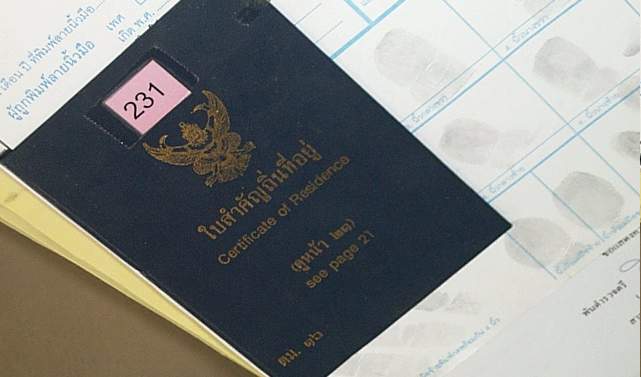
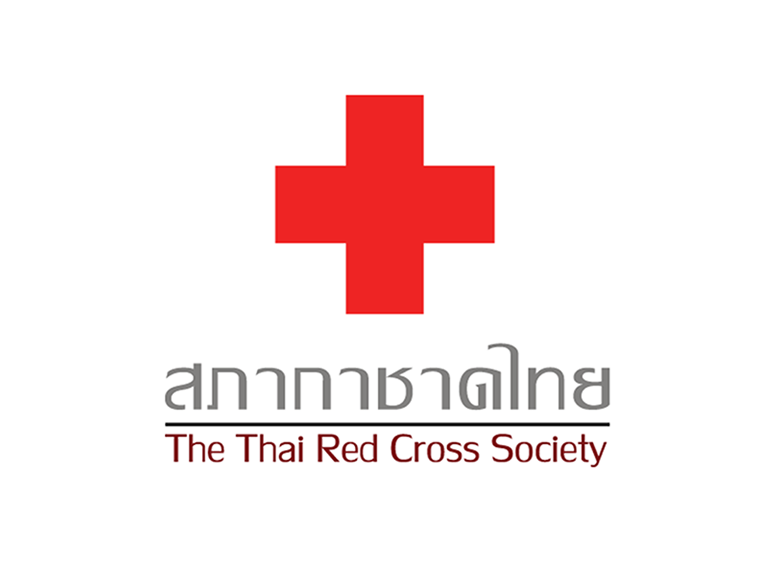
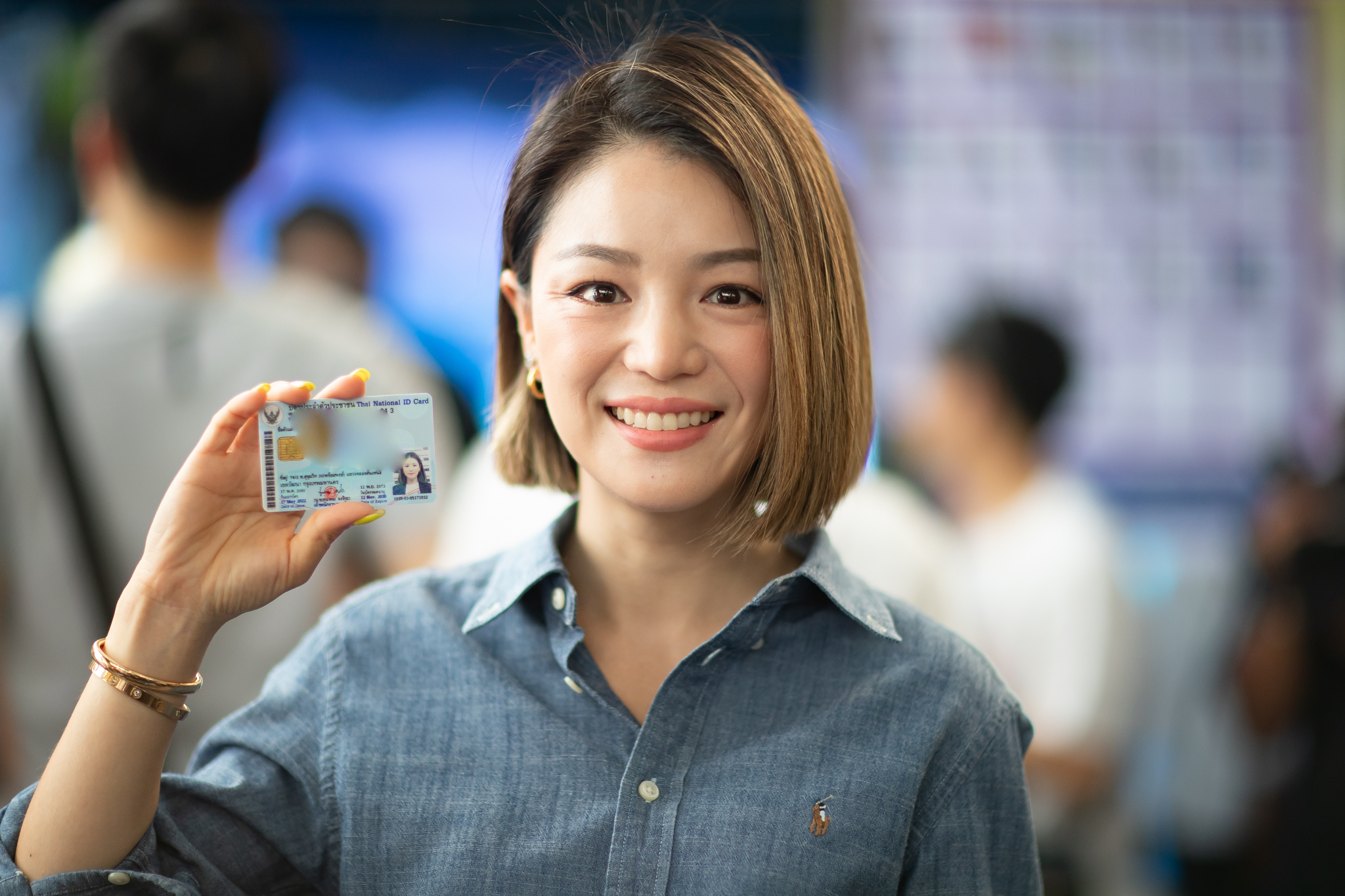
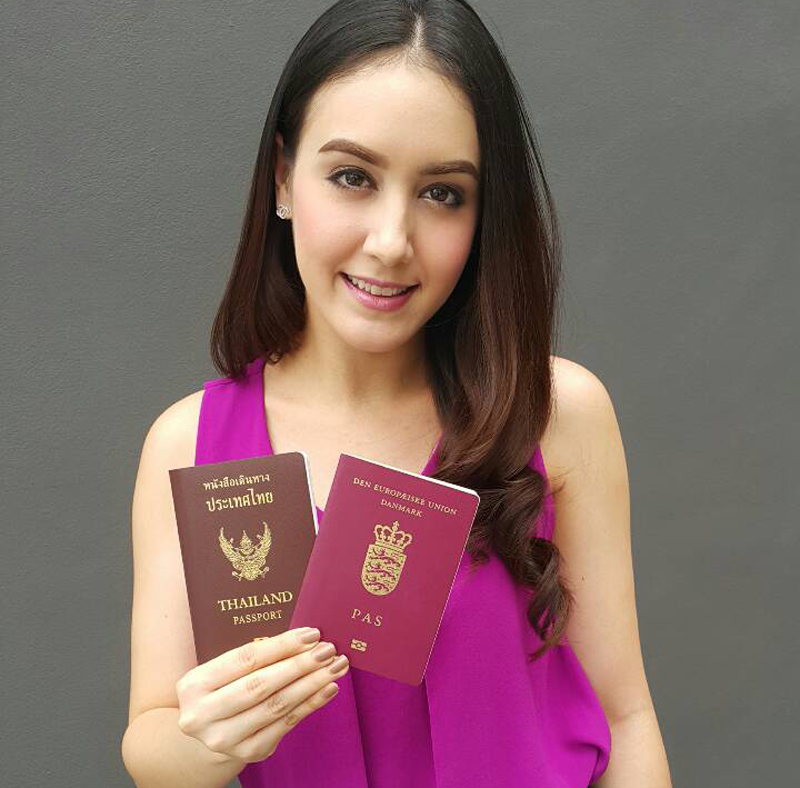



Thx for all information provided. I m married to my wife (thai) since 2 years and we have 2 children together. I m currently on a visa non-imm o (thai wife) which I obtained 15 years ago (before it was non-b visa).
My question is that I would like to apply for an LTR visa for convenience, and apply for thai citizenship.
Not sure if I get an LTR visa can I then apply to Thai citizenship or I need to apply first to Thai citizenship under my current non-imm visa and then can switch to LTR once I had applied ?
My current visa will expire in 2 months so I was thinking to apply for LTR first.
Thx
Hi Jack – this article which you have commented on is the process for foreign women married to Thai husbands. The process for them is slightly different.
You need to have a look at this link below which is the process for foreign men married to Thai wives. One of the non-negotiables is that you be on unbroken non-immigrant extensions of stay (not even one day gap between them) and have been working for three years for a Thai entity (with associated tax returns) prior to application. If you aren’t working then you aren’t eligible unfortunately.
If you are working, there is a further points test which you must pass – take a look at the article which explains it all.
Also uncertain, given it is so new, is whether the LTR will be seen as a qualifying visa for citizenship applications.
https://www.thaicitizenship.com/thai-citizenship-application-process/
Hope you find my comment. Been silently following your website and FB page and it has been very useful in my preparation.
My Thai husband and I got married in my home country (abroad).
1) For the “wedding certificate”, is it equivalent to คร. 2? Or just the marriage certificate from the Thai Embassy we obtained it from?
2) For married abroad, are คร. 2 and 3 still required? Or is it just the คร.22 for submission?
Thanks in advance!
Hi there,
Glad you’ve found the website and FB Group useful. So in essense:
– If married in Thailand this will mean providing your Thai marriage certificate (Kor. Ror 3/คร. 3) as well as a copy of the registration of marriage (Kor. Ror 2/คร. 2 – “ทะเบียนสมรส”) from your district office.
– If married overseas you will also need a copy of a Kor. Ror 22 – “Registration of Family Status” (คร. 22 – “ทะเบียนฐานะแห่งครอบครัว”) from your local district office. This essentially a recognition of your foreign marriage in Thailand.
For the latter, the district office will tell you what they want, but it usually means a translated copy of the marriage certificate from overseas. You mention however that you got the marriage certificate from the Thai embassy? Then you might want to see if the district office thinks this is enough for you to get the คร. 22
Hope this helps!
TC
Thanks for replying. So essentially, it really is just คร. 22 that I have to submit for citizenship application given we got married abroad?
Yep that should be it. You might need to have your OS marriage certificate formally translated through for the district office to issue you with the คร22
The one issued from the embassy already has the English translation. And when we do the yearly visa renewal, I have no problem requesting for คร. 2 so I do hope the same goes with คร. 22. Thanks so much!
Hi,
Is there any other way to contact you guys with this, I have so many questions popping up
Sorry I seemed to have missed your message. Yes, we have a private FB group which you can join and ask questions there. There are about 2500 members who can assist you. The link is here https://www.facebook.com/groups/2116997095087609/
Hi, are the interview in Thai? Is it okay if I can’t speak Thai? or is completely necessary?
If based on marriage to a Thai husband there is no need really to speak Thai and you won’t be assessed on that.
My husband and I were married years before he was naturalized to Thai. We have children. Would like to know when to apply Thai citizenship?, Wait till one year after he got Thai citizenship or can apply right after he got Thai citizenship ?
Hi Julia.
As soon as your husband is naturalised you are eligible to apply for thai citizenship based on marriage to a thai husband. This assumes that he meets all the other requirements.